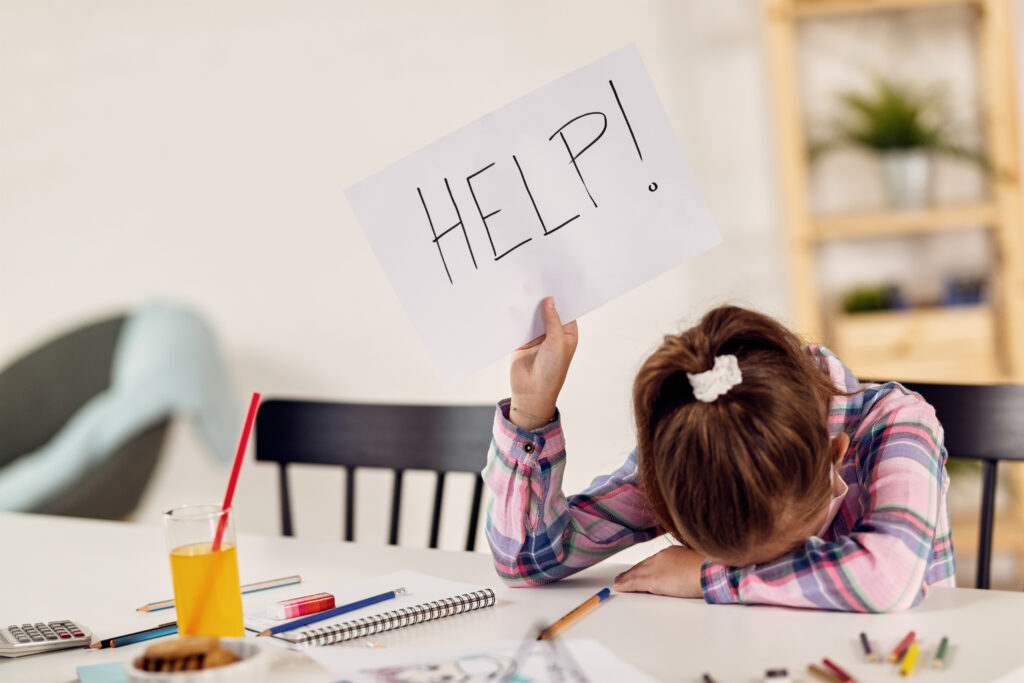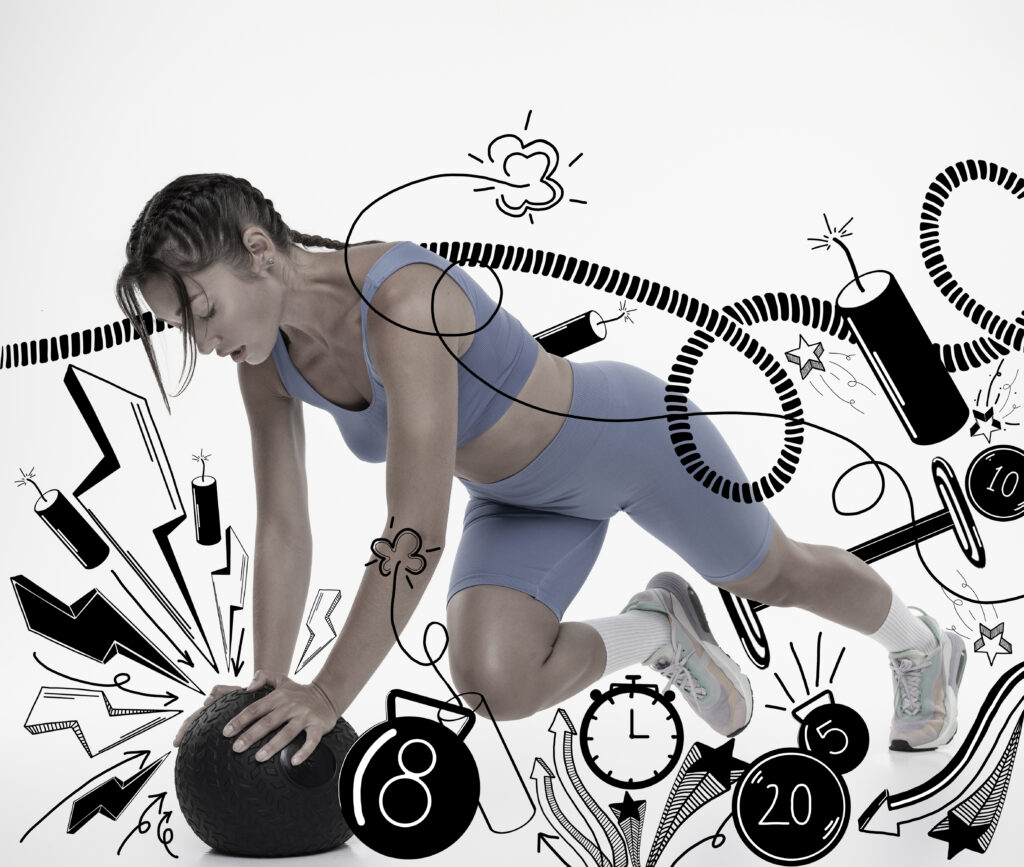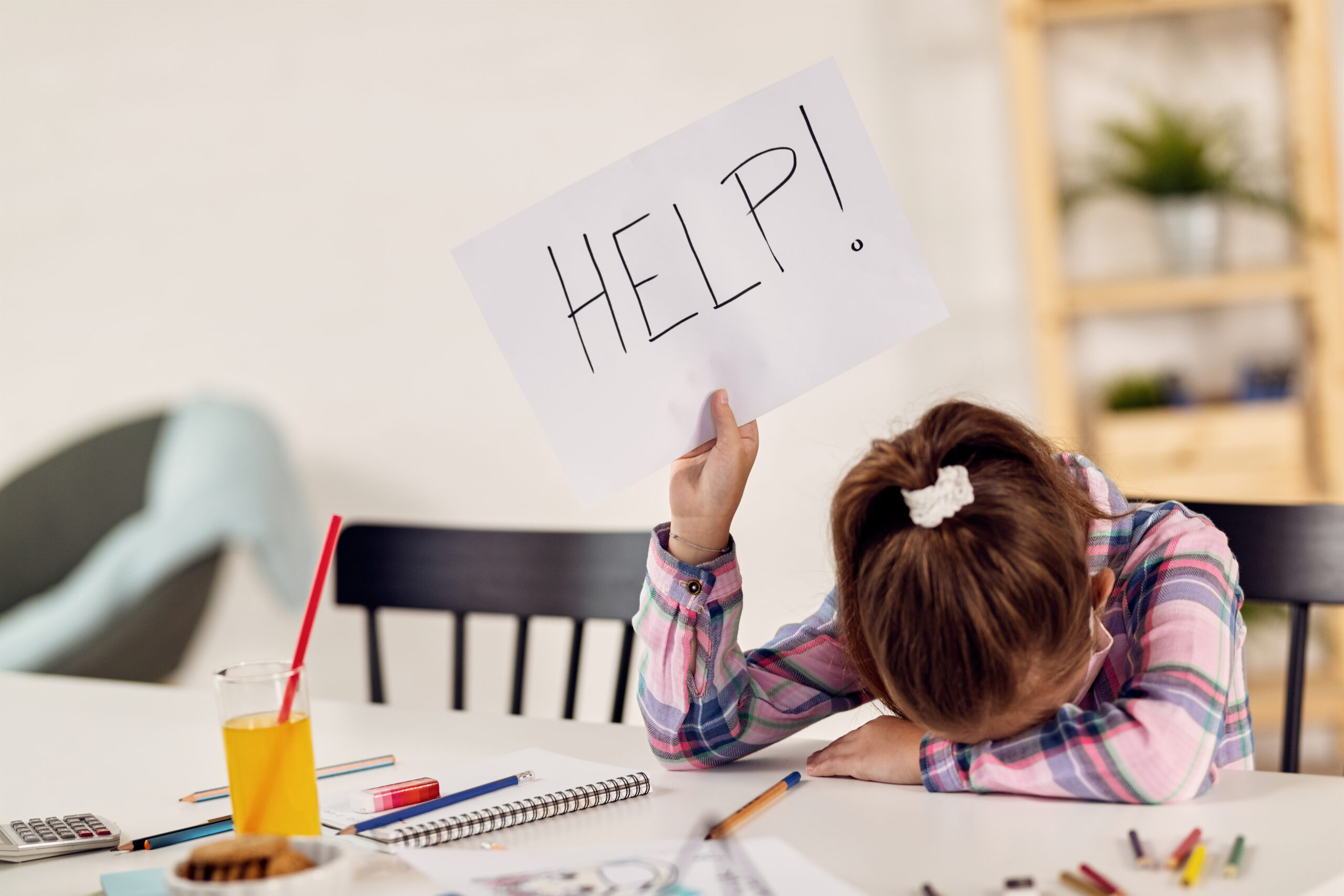Table of Contents
Introduction
Attention Deficit Disorder (ADD), also known as Attention Deficit Hyperactivity Disorder (ADHD), is a neurodevelopmental condition that affects millions of children and adults worldwide. Individuals with ADD often struggle with sustaining attention, impulsivity, and hyperactivity, which can significantly impact their daily lives. While medication is commonly prescribed to manage ADD symptoms, there are alternative approaches that can be just as effective, especially for those who prefer non-pharmacological interventions. In this blog post, we will explore various practical strategies for managing Attention Deficit Disorder( ADD) without medication, and how these approaches can improve overall well-being.
Symptoms of Attention Deficit Disorder (ADD)

Image by Drazen Zigic on Freepik
Attention Deficit Disorder (ADD), also known as Attention Deficit Hyperactivity Disorder (ADHD), is characterized by a persistent pattern of inattention, impulsivity, and/or hyperactivity that interferes with daily functioning and development. It’s important to note that individuals with ADD may exhibit different combinations of symptoms, and the severity can vary from person to person. The symptoms can be grouped into two main categories: inattentive symptoms and hyperactive-impulsive symptoms.
1. Inattentive Symptoms:
a. Difficulty Sustaining Attention: Individuals with ADD may have trouble staying focused on tasks, conversations, or activities. They may easily become distracted by external stimuli or their own thoughts.
b. Poor Organization and Time Management: Difficulty organizing tasks, prioritizing activities, and managing time can lead to missed deadlines and disorganization in daily life.
c. Forgetfulness: Individuals with ADD may frequently forget appointments, obligations, or important items like keys or school materials.
d. Difficulty Following Instructions: Following through on instructions and completing tasks, especially those that require sustained mental effort, can be challenging for people with ADD.
e. Avoidance of Tasks Requiring Mental Effort: Individuals with ADD may avoid or resist tasks that demand sustained mental effort or attention, such as studying or completing paperwork.
f. Lack of Attention to Details: People with ADD might have difficulty noticing and attending to small details, leading to errors in schoolwork or work-related tasks.
2. Hyperactive-Impulsive Symptoms:
a. Excessive Fidgeting or Restlessness: Restlessness and excessive movement, such as squirming or tapping hands and feet, are common symptoms of ADD.
b. Impulsivity: Individuals with ADD may act hastily without thinking about the consequences. This impulsivity can lead to social, academic, or occupational challenges.
c. Difficulty Waiting Turn: Waiting in line or taking turns during activities can be difficult for individuals with ADD, as they may struggle with patience.
d. Interrupting Others: Impulsivity can manifest in interrupting conversations or intruding on others’ activities, as individuals with ADD might struggle to wait for their turn to speak.
e. Excessive Talking: People with ADD may engage in rapid or excessive talking, often blurting out responses or comments.
f. Inability to Remain Seated: Difficulty sitting still or staying seated in situations where it is expected, such as in the classroom or at a desk, is a common symptom of hyperactivity.
It is essential to recognize that the presence of these symptoms alone does not necessarily indicate a diagnosis of ADD. A qualified healthcare professional or mental health specialist should conduct a comprehensive assessment to determine if a person meets the criteria for Attention Deficit Disorder.
Practical Approaches and Effective Strategies
1. Structured Daily Routine for Managing Attention Deficit Disorder
Establishing a structured daily routine is vital for individuals with ADD. Consistent schedules provide a sense of predictability, making it easier to focus on tasks and responsibilities. Organize daily activities, including wake-up and bedtimes, meals, work/study hours, breaks, and leisure time. Use visual aids like calendars and task lists to help reinforce the routine and keep track of tasks.
Example: Jane, a college student with ADD, struggled to complete her assignments on time. By creating a daily schedule that allocated specific study hours, meal breaks, and relaxation time, Jane found it easier to manage her workload and reduce her anxiety.
2. Time Management Techniques
Time management skills are essential for individuals with ADD, as they can help increase productivity and reduce feelings of overwhelm. Techniques like the Pomodoro method, time blocking, and setting timers can break tasks into manageable chunks and improve focus. Time management plays a vital role in managing Attention Deficit Disorder.
Example: John, an adult with ADD, used the Pomodoro technique to study for his professional certification exams. He set a timer for 25 minutes of focused study followed by a 5-minute break. After completing four cycles, he took a more extended break. This method allowed him to study effectively without feeling mentally drained.
3. Mindfulness and Meditation
Practicing mindfulness and meditation can be beneficial in Managin Attention Deficit Disorder. ADD symptoms. These techniques enhance self-awareness, reduce impulsivity, and promote emotional regulation. Engaging in mindfulness exercises regularly can lead to improved attention and concentration and will help managing Attention Deficit Disorder.
Example: Emily, a teenager with ADD, struggled with impulsive behavior in social settings. After learning mindfulness techniques through a guided meditation app, she found it easier to pause and think before reacting, which led to more positive interactions with her peers.
4. Regular Exercise for Managing Attention Deficit Disorder

Image by Freepik
Physical activity has been shown to be a powerful natural treatment for ADD. Exercise helps release dopamine and norepinephrine, neurotransmitters that play a key role in attention and focus. Engaging in regular physical activities like walking, jogging, swimming, or yoga can positively impact ADD symptoms.
Example: David, a young boy with ADD, had difficulty concentrating in school. After participating in extracurricular sports activities like soccer and swimming, he experienced improved focus and academic performance.
5. Cognitive Behavioral Therapy (CBT)
CBT is a therapeutic approach that helps individuals identify and modify negative thought patterns and behaviors. CBT is very effective method for managing Attention Deficit Disorder. It can be particularly helpful for managing ADD-related challenges such as impulsivity, time management issues, and low self-esteem.
Example: Sarah, an adult with ADD, struggled with chronic lateness due to poor time management. Through CBT sessions, she learned effective organizational skills and coping strategies, which significantly reduced her tardiness and increased her confidence.
6. Nutrition and Diet
Maintaining a balanced diet can also support individuals with ADD. Avoiding excessive sugar and caffeine intake while increasing consumption of omega-3 fatty acids and whole foods has been associated with improved attention and behavior.
Example: Michael, a child with ADD, used to consume a lot of sugary snacks and drinks. After shifting to a healthier diet that included fruits, vegetables, and fish rich in omega-3s, his parents noticed a reduction in hyperactivity and improved school performance.
7. Sleep Hygiene
Getting adequate and quality sleep is crucial for individuals with ADD. Sleep deprivation can exacerbate symptoms like inattention and impulsivity. Practicing good sleep hygiene involves establishing a bedtime routine, creating a relaxing sleep environment, and avoiding stimulating activities before bedtime.
Example: Alex, a teenager with ADD, often had trouble falling asleep at night, leading to difficulties in concentrating during the day. By implementing a consistent bedtime routine that included reading a book and dimming the lights before bed, Alex found it easier to fall asleep and experienced better focus during the day.
8. Assistive Tools and Technology
Utilizing assistive tools and technology can be incredibly beneficial for managing ADD symptoms. There are numerous apps, software, and devices designed to improve focus, time management, and organization. Some apps offer features like task reminders, noise-canceling capabilities, and virtual organizers.
Example: Olivia, an adult with ADD, struggled with maintaining a to-do list and often forgot important tasks. She started using a task management app with reminder notifications, which helped her stay organized and on top of her responsibilities.
9. Support Groups and Coaching
Joining support groups or working with an ADD coach can provide valuable emotional support and practical strategies. Interacting with others who share similar experiences can create a sense of community and reduce feelings of isolation. ADD coaches can offer personalized guidance and accountability to help individuals reach their goals.
Example: Mark, a young adult with ADD, felt overwhelmed with the demands of college. He joined an online support group where he connected with peers facing similar challenges. Additionally, he worked with an ADD coach who helped him develop study strategies and coping mechanisms, leading to improved academic performance.
10. Environmental Modifications
Making simple modifications to the home or work environment can enhance focus and reduce distractions for individuals with ADD. Creating a clutter-free and organized space, minimizing noise, and using noise-canceling headphones can significantly improve attention.
Example: Laura, a child with ADD, found it difficult to concentrate on her homework due to the noise from the TV and siblings playing nearby. By setting up a quiet study area away from distractions, she could focus better and complete her assignments more efficiently.
11. Mindful Digital Usage
In today’s digital age, individuals with ADD can benefit from managing their screen time and digital device usage mindfully. Excessive screen time can lead to information overload and decrease attention span. Setting boundaries for social media and other digital distractions can help improve focus and reduce the risk of procrastination.
Example: Chris, a young adult with ADD, noticed that he spent hours scrolling through social media instead of completing important tasks. He decided to set specific time limits for social media usage and used productivity apps to block distracting websites during work hours, leading to increased productivity and focus.
12. Sensory Support
For some individuals with ADD, sensory support can be beneficial in maintaining focus and emotional regulation. Sensory support can involve using fidget toys, weighted blankets, or noise-cancelling headphones to create a calming and focused environment.
Example: Jessica, a child with ADD, often felt restless and found it challenging to stay seated during class. Her teacher allowed her to use a discreet fidget toy during lessons, which helped her channel excess energy and improved her ability to pay attention.
13. Encouraging Interests and Hobbies
Encouraging and nurturing individual interests and hobbies can be a powerful way to engage someone with ADD. Pursuing activities they are passionate about can provide a sense of achievement, build self-confidence, and enhance attention in other areas of life.
Example: Tom, a teenager with ADD, had difficulty focusing on traditional academic subjects. However, he excelled in art and music. By incorporating art and music into his daily routine, Tom developed better concentration skills, which positively impacted his academic performance as well.
14. Positive Reinforcement and Self-Celebration
Recognizing and celebrating small achievements are essential for individuals with ADD. Positive reinforcement can motivate continued efforts and boost self-esteem. Encouraging self-celebration for completing tasks and overcoming challenges fosters a positive mindset and resilience.
Example: Sarah, an adult with ADD, struggled with organization and time management in her workplace. Her supervisor started acknowledging her progress in these areas and praised her efforts. This positive reinforcement motivated Sarah to continue improving her skills.
15. Flexibility and Self-Compassion
Living with ADD can be unpredictable, and there will be days when certain strategies may not work as expected. It is crucial to practice flexibility and self-compassion during such times. Instead of dwelling on setbacks, learn from them and adapt the approach accordingly.
Example: Michael, a young adult with ADD, occasionally found it challenging to stick to his routine due to unexpected events. Rather than getting discouraged, he recognized that life can be unpredictable and allowed himself to adjust his schedule when needed without feeling guilty.
Conclusion
Living with Attention Deficit Disorder (ADD) can present unique challenges, but it doesn’t have to limit an individual’s potential. By implementing practical strategies and non-medication treatments, people with ADD can effectively manage their symptoms and lead fulfilling lives. Remember that each person’s experience with ADD is different, and finding the right combination of approaches may require some trial and error. Patience and persistence are key to success. It is essential to work closely with healthcare professionals, therapists, and support networks to tailor interventions to individual needs.
Always remember that seeking professional guidance is crucial when dealing with any medical condition, including ADD. A healthcare provider can offer personalized recommendations and ensure that the chosen non-medication treatments are appropriate and safe for specific circumstances.
By combining dedication, understanding, and support, individuals with ADD can navigate their challenges and thrive, unlocking their true potential in both their personal and professional lives.
Note: Check my next Blog on Treatment of Phobias
Frequently Asked Questions (FAQs) –
1. Is it possible to effectively manage ADD without medication?
Yes, it is entirely possible to manage Attention Deficit Disorder (ADD) without medication. Many non-pharmacological approaches and strategies can be highly effective in reducing ADD symptoms and improving overall well-being. These approaches include structured routines, time management techniques, mindfulness, regular exercise, cognitive-behavioral therapy, and more.
2. How long does it take to see improvements with non-medication treatments for ADD?
The timeline for improvement varies from person to person. Some individuals may notice positive changes relatively quickly, while others may require more time to see significant results. Consistency and patience are key factors. It is essential to give the chosen strategies sufficient time to work and make adjustments as needed.
3. Are there any risks associated with non-medication treatments for ADD?
Non-medication treatments for ADD typically have minimal to no risks, as they are generally considered safe. However, it is essential to work with a healthcare professional or specialist when implementing these strategies, especially if there are other underlying medical conditions. Certain approaches, like exercise or mindfulness, may have additional health benefits.
4. Can adults with ADD benefit from these non-medication treatments as well?
Absolutely. Non-medication treatments for ADD are effective for both children and adults. In fact, many of these strategies, such as time management techniques, cognitive-behavioral therapy, and mindfulness, can be even more relevant and helpful in adulthood.
5. Is it necessary to follow all the non-medication treatments listed in the blog post?
No, it is not necessary to follow all the listed treatments. Each person’s experience with ADD is unique, and what works for one individual may not be as effective for another. It is essential to identify which strategies resonate best with your needs and lifestyle. Experimenting with different approaches and finding the right combination is key.
6. Can non-medication treatments completely cure ADD?
While non-medication treatments can significantly reduce ADD symptoms and improve daily functioning, they may not completely cure the condition. ADD is a neurodevelopmental disorder, and its core characteristics may still be present. However, with the right interventions, individuals with ADD can learn to manage their symptoms effectively and lead successful lives.
7. Can I combine non-medication treatments with medication if needed?
Yes, it is possible to combine non-medication treatments with medication if recommended by a healthcare professional. Some individuals may find that a combination of approaches yields the best results for managing their ADD symptoms. However, it is essential to work closely with a healthcare provider to determine the most suitable treatment plan for individual needs.
8. Are there any lifestyle changes that can help manage ADD symptoms?
Yes, several lifestyle changes can contribute to managing ADD symptoms effectively. These include adopting a healthy diet, engaging in regular physical exercise, maintaining a consistent sleep schedule, and minimizing screen time. A supportive and understanding environment can also significantly impact a person’s ability to manage ADD challenges.
9. Are there any specific strategies for managing hyperactivity in individuals with ADD?
Strategies such as regular exercise, mindfulness, and sensory support (e.g., fidget toys) can be helpful in managing hyperactivity in individuals with ADD. Additionally, setting up a structured routine and creating a calming environment can reduce restlessness and impulsive behaviors.
10. Is there any evidence supporting the effectiveness of non-medication treatments for ADD?
Yes, numerous studies and research have shown the effectiveness of non-medication treatments for ADD. Cognitive-behavioral therapy, mindfulness-based interventions, and lifestyle changes have demonstrated positive outcomes in managing ADD symptoms. However, individual responses to these treatments may vary, so personalized approaches are essential.
Note: The information provided in this blog post and the accompanying FAQs is for educational purposes only and should not be considered medical advice. If you or someone you know is experiencing symptoms of ADD, it is essential to seek professional guidance from a healthcare provider or mental health specialist for proper evaluation and treatment.
Follow me on the following links
Website http://www.positiveworldcounselling.com
Facebook Page https://www.facebook.com/pwcc38/


You’re so awesome! I don’t suppose I’ve read through something like that before.
So good to find another person with some original thoughts on this issue.
Seriously.. thanks for starting this up. This site is something
that’s needed on the web, someone with some originality!